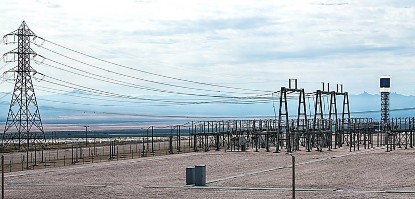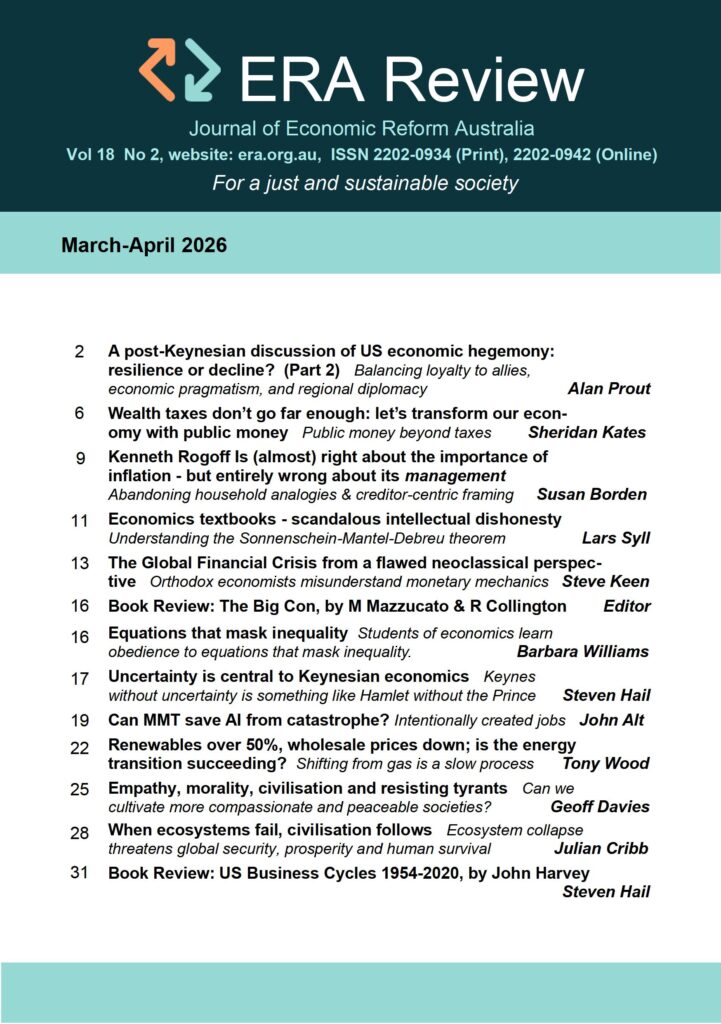Energy Prices! Transition costs or Opportunism?
Greg Reid

In eastern Australia there is a national energy market (NEM) where generators of all types bid every 5 minutes.
The Australian Energy Market Operator (AEMO) takes the lowest bids to meet demand. Even the network of poles and wires has been divided up into territories administered by individual companies. Why then are prices escalating even when the federal gov ernment has capped fuel prices for coal and gas generators? Solar and Wind farms are much cheaper to build and operate than the old fossil fuel generators. Why is this massive privatised market failing consumers?
One of the fastest trends in charges for consumer useage is the rising cost of “off peak” power. Every day, the production of solar power starts gradually at dawn, peaks in the middle of the day and then tails off to nothing at dusk. While this makes the wholesale price of power cheaper in the middle of the day, solar is “eating the lunch” of coal fired generators. Massive coal fuelled generators take days to “spin up” and so must run 24 hrs, 7 days a week. To offset losses during the day these generators have to charge more for late night “off peak” power. This trend will continue until the late night power demand can be met from stored renewable power such as pumped Hydro or “Green Hydrogen”.
Peak demand tends to occur just as solar is fading, when offices and factories are still open and workers are returning home to switch on air conditioners, heaters and stoves. Previously, this extra demand was largely met by hydro-power. In the decades since the Snowy Hydro Scheme, power demand has increased enormously. We have increasingly relied on Gas Peaking Power Plants. Essentially these are massive turbines like jet engines. They are very inefficient and very expensive to operate but they can be started relatively quickly to prevent power blackouts. Recently, large stationary batteries have been built to store energy in the middle of the day when it is cheap, and then release it when demand and prices are high. These batteries do not meet the needs of all night “off peak” power but they can begin to “eat the lunch” of gas peaking plants. More batteries are planned for the future.
While each power generator tends to have its own company, Gas Peaking power companies and coal power companies tend to be owned by the same larger entities. As coal generators are generally old they are increasingly at risk of sudden failures. Electricity is a very inelastic market. If a big generator fails when demand is high and when solar is fading (i.e. late in the evening) then wholesale prices can jump 250 fold from $60/MWh to$15,500/MWh. The market regulator has noted an increasing tendency for breakdowns and unscheduled maintenance at times of peak demand and so introduced caps in the market but this has not reversed the trend. The huge spikes in wholesale prices have triggered the collapse of many smaller power retailers and a general increase in “peak” and “shoulder” prices across the whole network.
The network itself poles and wires was initially built by governments with the maintenance covered by small daily “service fees”. The network has now been broken up into regions owned by individual companies, but these are mostly still wholly owned by state governments. One cannot choose which network company to use, so these companies are not competitive. Unfortunately, these companies have proved to be resistible cash cows for state governments. The consumers must pay but are generally unaware that they are just paying more to the government they elected. For example, “service fees” in northern NSW have risen 10 fold in the last 20 years, up 25% this year alone. Upgrades to the network must now be fully funded
by these fees but from the last published accounts of this company, ¼ of all the fee revenue received was paid to the state government. The national energy market was created to reduce the costs of the transition to renewable energy but heritage players, private and public, are just gaming the system to reap record profits.
Greg Reid is an ERA member in NSW































